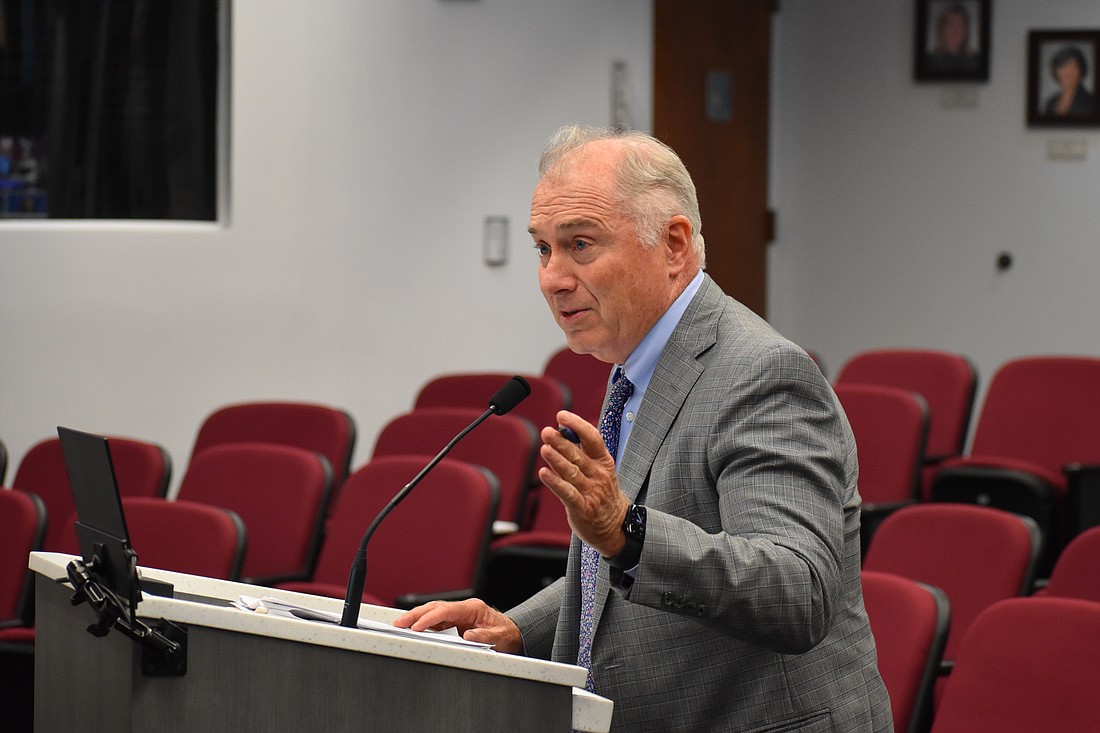- November 25, 2024
-
-
Loading

Loading

Manatee County commissioners have been lining up in opposition to the county staff's plan to add restrictions to those who host agritourism events.
The plan, which will be considered at an Oct. 20 hearing, would require those hosting agritourism events, such as Hunsader Farms' Pumpkin Festival, to acquire temporary use permits and to conduct an informal traffic study for uses drawing 1,000 or more people.
Currently, farmers do not need to fulfill any requirements to convert their farm operations into an agritourism attraction, as long as they do not add additional structures or tents for the purpose of accommodating the public.
District 5 Commissioner Vanessa Baugh has been firm on her stance.
“I do not, and I will not, vote for something that hits our farmers who are just trying to make a few extra dollars,” Baugh said at a Sept. 22 Manatee County Commission meeting in which the latest draft of the staff's proposal was presented.
Commissioner Carol Whitmore said it would be a financial burden on those attempting to host an agritourism event if a traffic study is required.
“For a farmer to pay somebody $20,000 dollars to do a traffic study is ridiculous,” she said.
Commissioner George Kruse said the 1,000-guest minimum for a permit “seemed incredibly arbitrary.”
“A thousand people out at a not-to-be-named family’s farm out west, is meaningfully different from 1,000 people at a medieval fair, or a different place on (County Road) 675, that a family might own and have fall festivals,” he said.
Nicole Knapp, Manatee County Planning Section manager, said the department created the proposal as a reaction to language introduced in the 2016 state statutes that granted counties the authority to regulate “substantial offsite impacts” of agritourism.
The Planning Department reported to the commissioners that the proposed requirements do not violate the statutes, which still prohibit on-site regulations, as the proposal only addresses offsite concerns such as impacts to traffic patterns and access for emergency vehicles.
Two notable changes were made since the proposal's prior presentation to the commission.
One was the replacement of the requirement for a traffic impact analysis, a formal traffic study which Knapp said could cost up to $25,000, with the new requirement for an informal study by the property owner or someone hired by the property owner.
Clarke Davis, deputy director of traffic management, told commissioners the new requirement for an informal traffic study would be simple and would include a list of access points and expected numbers of people or cars per day, to determine the need for off-duty law enforcement officers to manage the traffic.
He said if the event met certain thresholds for size, it was possible a transportation professional would be required for a study, although he said in this case the county would want to review that event anyway.
Additionally, a requirement for a special use permit for 1,000 or more attendees was changed to the current requirement for a temporary use permit for that same range of attendees.
According to Knapp, a temporary use permit has a lower cost of $270, down from roughly $7,000 for a special use permit, and can be processed in less than 30 days because it does not have to be reviewed in a public hearing as a special use permit does.
Kevin Hennessy, an attorney representing Hunsader Farms and the Sarasota Medieval Fair, said he did not think any new rules should be required.
"The issues that neighbors complain about are noise, they complain about light, they complain about traffic. Those can be handled by your code enforcement," Hennessy said.
He said when presenting certain applications to the county, the Medieval Fair staff had already been asked to present a traffic impact analysis, which he said refuted claims by the county that these studies would be avoided.